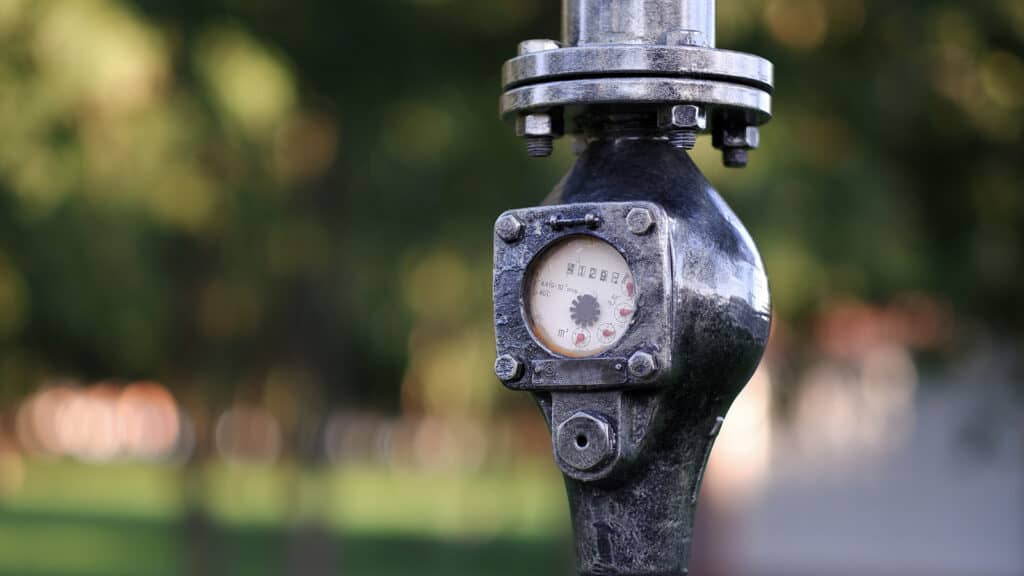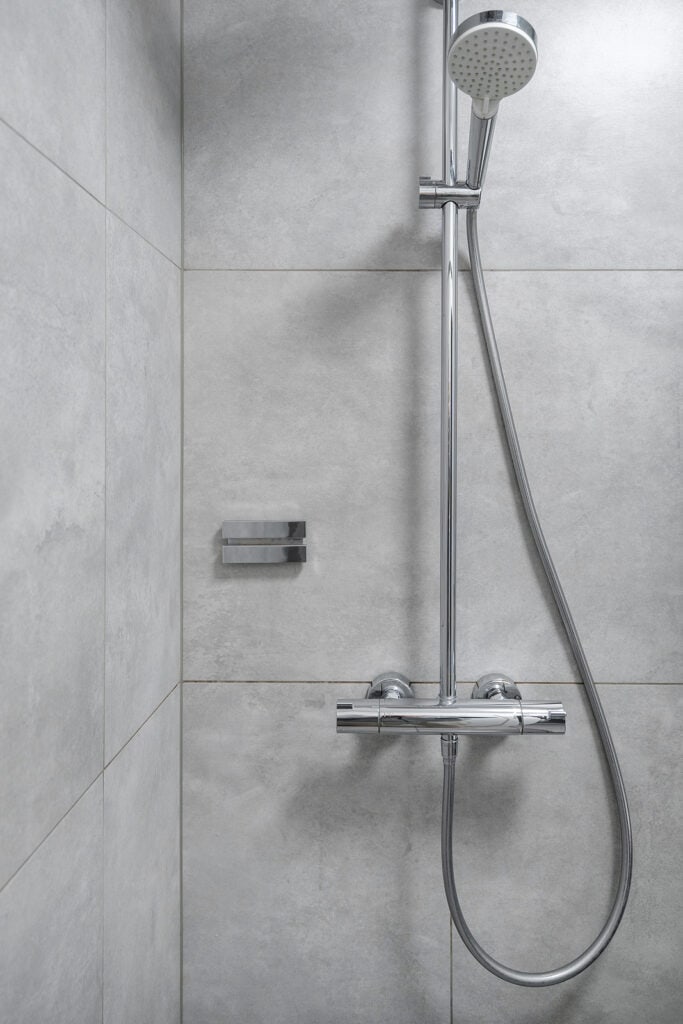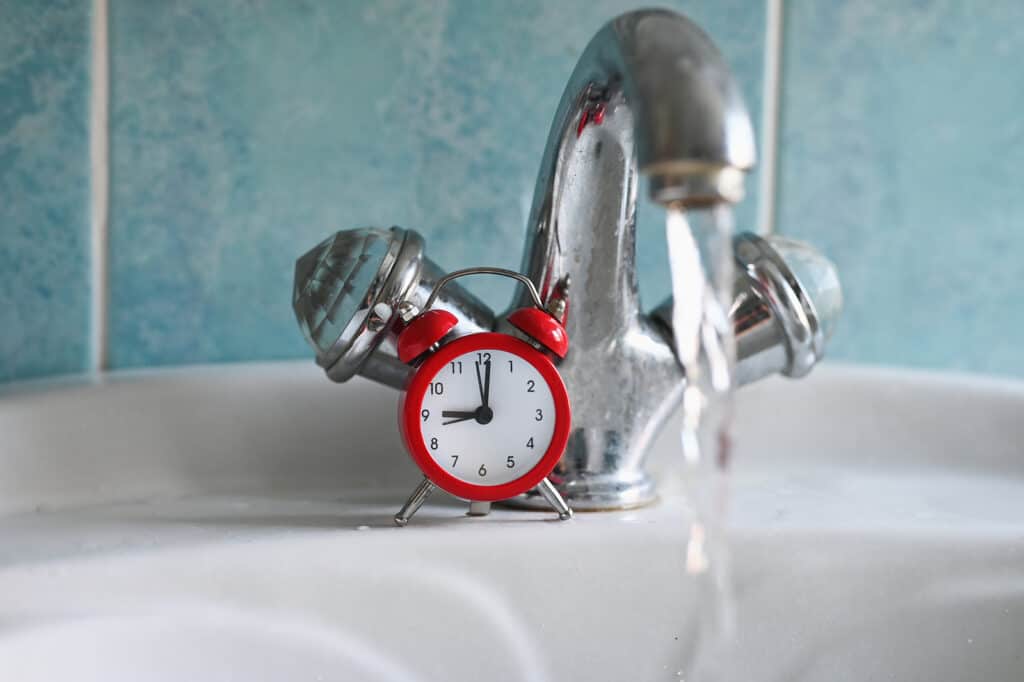Water Saving Devices for Hotels
As someone deeply committed to environmental responsibility, it's truly inspiring to witness the hospitality industry's dedicated efforts towards sustainability. The adoption of water-saving devices in hotels is a remarkable step forward, not only in conserving our planet's precious water resources but also in reducing operational costs for hoteliers.
In this guide, I'll delve into the world of water-saving devices for hotels, exploring their numerous benefits and providing insights into how these eco-friendly innovations can seamlessly integrate into hotel operations.
The Importance of Water Conservation in the Hotel Industry
Water conservation is a paramount concern within the hotel industry, driven by a multitude of factors that underscore its importance.
Water Scarcity: A Global Crisis
Water scarcity is a pervasive and pressing global challenge. Across the globe, millions of people grapple with limited access to clean water. The hotel industry, given its considerable water consumption, shoulders a moral obligation to curtail minimize water usage. By doing so, hotels play a vital role in alleviating pressure on local water supplies and contribute to the overarching global endeavor to combat water scarcity.
Economic Benefits through Cost Savings
Water is not only a precious resource but also a significant operational cost for hotels. The installation of water-saving devices, such as low-flow faucets and efficient irrigation systems, can result in substantial cost reductions. As hotels decrease their determinants of water consumption, they simultaneously decrease their expenses, leading to improved financial performance and a more robust bottom line.
Environmental Stewardship and Competitive Advantage
The modern hospitality landscape is increasingly characterized by environmentally conscious guests who prioritize sustainability. Hotels that take proactive steps towards environmental responsibility not only reduce their ecological footprint but also gain a competitive edge. Eco-friendly establishments attract environmentally aware travelers, bolstering customer loyalty and enhancing their reputation in the industry.

Types of Water Saving Devices for Hotels
Now, let's explore the various types of water-saving devices that hotels can incorporate into their operations:
1. Low-Flow Showerheads
Description
Low-flow showerheads represent a water-saving marvel, designed to limit water flow without compromising the quality of the shower experience. These devices have evolved significantly over the years to strike a harmonious balance between sustainability and guest satisfaction.
Benefits:
- Water Savings: Low-flow showerheads are engineered to be incredibly efficient. They can curtail water consumption by a substantial margin, often reducing usage by up to 60%, depending on the specific model. This translates to a significant reduction in the hotel's overall water footprint, a vital step towards conserving this finite resource.
- Cost Savings: By virtue of their ability to diminish water usage, low-flow showerheads result in tangible cost savings for hotels. Lower water bills not only contribute to the hotel's operational efficiency but also align with its environmental responsibility goals.
- Guest Satisfaction: One of the most notable advancements in the hospitality industry is the transformation of low-flow showerheads into user-friendly, satisfying fixtures. Guests no longer need to sacrifice their comfort for eco-consciousness. Modern low-flow showerheads are designed to provide an enjoyable shower experience, striking a balance between reduced water usage and guest comfort. This ensures that guests can indulge in guilt-free, refreshing showers while appreciating the hotel's commitment to sustainability.
- Extended Lifespan of Plumbing Infrastructure: Low-flow showerheads are gentle on plumbing systems. By reducing the intensity of water flow, they help minimize wear and tear on pipes, fixtures, and valves. This leads to longer-lasting plumbing infrastructure, reducing maintenance and replacement costs for the general characteristics of the hotel.
- Consistent Water Pressure: Many low-flow showerhead models are equipped with technology that maintains consistent water pressure even while reducing flow. This ensures that guests experience steady and enjoyable showers, without fluctuations in water pressure.
- Regulatory Compliance: In some regions, there are strict regulations regarding water usage in commercial establishments like hotels. Low-flow shower heads toilets and urinals bath often help hotels comply with these regulations effortlessly, avoiding potential fines and legal issues.
2. Dual-Flush Toilets
Description:
Dual-flush toilets represent an innovative approach to bathroom fixtures. These toilets are equipped with two distinct flush options: one for disposing of liquid waste and another for solid waste. This design empowers users to make an environmentally conscious choice by selecting the appropriate flush volume for the task at hand.
Benefits:
- Efficient Water Use: One of the most significant advantages of dual-flush toilets is their ability to facilitate efficient water use. Guests have the flexibility to use less water for flushing when disposing of liquid waste, significantly reducing overall water consumption. Depending on usage patterns, this can result in substantial water savings over time, benefiting both the environment and the hotel's bottom line.
- Reduced Plumbing Issues: Dual-flush toilets are engineered to be less prone to clogs and blockages, compared to traditional toilets. The separate flush options minimize the risk of obstructions, leading to fewer plumbing issues. This reduction in maintenance requirements not only saves the hotel money but also ensures a smoother guest experience by minimizing disruptions.
- Water Conservation Education: Beyond their practical advantages, dual-flush toilets also serve as educational tools for promoting water conservation. They encourage guests to be mindful of their water usage habits, fostering a sense of environmental responsibility. Guests become more aware of their role in sustainability, which can have a positive ripple effect as they carry these practices into their daily lives beyond the hotel stay.
- Compliance with Regulations: In regions where water usage is tightly regulated, dual-flush toilets help hotels easily meet or exceed water efficiency standards. This compliance can prevent potential fines and legal issues related to excessive water consumption.
- Enhanced Guest Experience: Dual-flush toilets are often associated with modern, eco-conscious facilities. Installing them can enhance the overall guest experience by conveying a commitment to sustainability and environmental consciousness, which aligns with the preferences of many travelers today.
- Cost-Efficiency in the Long Run: While the initial investment in dual-flush toilets may be higher than traditional models, the long-term cost savings from reduced water consumption, lower maintenance expenses, and potential regulatory compliance make them a financially savvy choice for hotels.
- Positive Environmental Impact: By implementing dual-flush toilets, hotels contribute to broader environmental efforts to conserve water resources, reduce wastewater treatment loads, and minimize the energy required for water heating.
3. Faucet Aerators
Description:
Faucet aerators are unassuming yet highly effective devices designed to enhance the efficiency of water fixtures. They function by introducing air into the water flow, maintaining water pressure while significantly reducing the volume of water used.
Benefits:
- Water Savings: Faucet aerators are champions of water conservation. They excel at reducing water consumption, with the potential to decrease usage by up to 50%. This substantial reduction not only conserves a valuable resource but also aligns with the hotel industry's growing commitment to sustainability.
- Cost Savings: The financial benefits of faucet aerators extend beyond water conservation. These devices lead to lower water bills, a direct and immediate cost-saving measure for hotels. Additionally, the reduced water volume being used translates into lower water heating costs, further bolstering the hotel's operational cost-efficiency.
- Environmental Stewardship: By installing faucet aerators, hotels demonstrate their commitment to environmental stewardship. This proactive approach to reducing water waste not only satisfies eco-conscious guests but also contributes to broader environmental goals, such as reducing the demand on local water sources and minimizing the energy required for water treatment.
- Easy Installation: One of the most compelling advantages of faucet aerators is their ease of installation. They can be effortlessly added to existing faucets, making them a cost-effective upgrade for hotels. This means that hotels can embark on their water-saving journey without the need for extensive plumbing renovations, minimizing both installation costs and operational downtime.
- Guest Satisfaction: Modern faucet aerators are designed to deliver an optimal water flow experience while conserving resources. Guests can enjoy satisfying water pressure and temperature control, ensuring their comfort and satisfaction during their stay.
- Regulatory Compliance: In regions with stringent water usage regulations, faucet aerators help hotels meet or exceed these standards effortlessly, avoiding potential fines and legal complications.
4. Smart Irrigation Systems
Description:
Smart irrigation systems represent a technological leap forward in landscaping and water management. These systems utilize real-time weather data and soil moisture sensors to tailor watering schedules precisely, ensuring that hotel landscapes receive just the right amount of water to thrive.
Benefits:
- Precision Watering: Smart irrigation systems are all about precision. By continuously monitoring weather conditions and soil moisture levels, they prevent overwatering – a common issue in landscaping that not only leads to water waste but can also harm plants and soil quality. By delivering the right amount of water at the right time, these systems promote healthy, lush landscapes that enhance the hotel's aesthetic appeal.
- Cost Savings: The efficiency gains from smart irrigation systems translate into tangible cost savings. Reduced water consumption directly results in lower landscaping maintenance costs. Hotels can allocate their resources more judiciously, redirecting funds from excess water usage to other areas that enhance the guest experience or improve sustainability efforts.
- Remote Control: One of the most compelling features of smart irrigation systems is their remote management capability. Hotel staff can monitor and adjust irrigation schedules from a centralized control system or even via a smartphone app. This remote control functionality allows for real-time adjustments in response to changing weather conditions, preventing unnecessary watering during rain or increasing irrigation during dry spells. It also minimizes the need for on-site maintenance, saving both time and resources.
- Water Conservation Education: By adopting smart irrigation technology, hotels not only conserve water but also have an opportunity to educate guests and staff about responsible water management practices. It underscores the hotel's commitment to sustainability and sets an example for eco-conscious behavior.
- Enhanced Landscape Health: Well-maintained and properly irrigated landscapes can improve the overall guest experience. Smart irrigation systems help ensure that the hotel's outdoor spaces remain lush, vibrant, and inviting, enhancing guest satisfaction and potentially attracting more visitors.
- Environmental Responsibility: Hotels that invest in smart irrigation systems demonstrate a commitment to environmental responsibility. This aligns with the expectations of guests who seek out eco-friendly accommodations, contributing to positive brand perception and loyalty.
5. Water Recycling Systems
Description:
Water recycling systems are sophisticated technological solutions designed to collect, treat, and repurpose wastewater generated within the hotel. This recycled water is then used for non-potable purposes such as landscape irrigation and toilet flushing, effectively closing the water usage loop.
Benefits:
- Significant Water Savings: Water recycling systems are game-changers in water conservation. By reusing treated wastewater for specific applications, these systems can dramatically reduce a hotel's reliance on freshwater sources. Depending on the scale and efficiency of the system, hotels can achieve remarkable water savings, often slashing freshwater consumption by up to 50% or more. This translates to a substantial reduction in the hotel's water footprint, contributing significantly to environmental conservation efforts.
- Sustainability Showcase: Implementing advanced water recycling technology enables hotels to showcase their unwavering commitment to sustainability. Guests and stakeholders increasingly value eco-conscious practices, and water recycling systems send a powerful message about the hotel's dedication to responsible resource management. It positions the hotel as a leader in sustainable hospitality, fostering a positive reputation and attracting environmentally aware guests.
- Long-Term Cost Savings: While the initial investment in water recycling systems can be substantial, the long-term financial benefits are equally impressive. Reduced reliance on expensive freshwater sources leads to significant savings on water bills. Over time, the system pays for itself through these savings, contributing to the hotel's financial sustainability. Additionally, the lower water consumption also translates into reduced wastewater disposal costs.
- Environmental Impact Mitigation: Water recycling systems help hotels mitigate their environmental impact. By diverting wastewater from traditional disposal methods and reducing the demand for freshwater, these systems decrease the energy required for water treatment and distribution. This not only conserves water resources but also reduces the hotel's carbon footprint, aligning with broader sustainability goals.
- Regulatory Compliance: In regions with stringent water usage regulations, water recycling systems can help hotels effortlessly meet or exceed these standards. This proactive compliance minimizes the risk of fines and legal complications associated with excessive water consumption.
- Drought Resilience: In areas prone to water scarcity or drought conditions, water recycling systems provide a critical buffer against water shortages. Hotels can maintain operational continuity and guest satisfaction by relying on their recycled water reserves during water restrictions.

Integrating Water Saving Devices into Hotel Operations
Integrating water-saving devices into hotel operations is a multifaceted endeavor that demands careful planning and execution. Here's a comprehensive step-by-step guide to successfully incorporate these devices into your hotel's daily activities:
Conduct a Water Audit
Iinitiate the process by conducting a thorough water audit. Examine your current water consumption patterns across all areas of the hotel, including guest rooms, kitchens, laundry facilities, and landscaping. This analysis will provide valuable insights into where water-saving measures can have the most significant impact.
Set Water Conservation Goals
Establish clear and quantifiable water conservation objectives. These goals should be specific, measurable, and time-bound, enabling you to track progress effectively. Consider factors such as return on investment (ROI), guest satisfaction, and the pursuit of sustainability certifications like LEED or Green Key.
Choose the Right Devices
Select water-saving devices that align with your established goals and budget. Collaborate with experts or consultants if necessary to ensure informed decision-making. Assess the range of available options, such as low-flow faucets, dual-flush toilets, and smart irrigation systems, and choose those that best fit your hotel's unique needs.
Installation and Training
Enlist professionals with expertise in plumbing and equipment installation to implement the chosen water-saving devices. Simultaneously, ensure that both staff and guests receive comprehensive training on the proper use and maintenance of these devices. Staff education is essential for seamless device operation, while guest training fosters a collective commitment to water conservation.
Monitor and Analyze
Establish a robust system for monitoring water usage data on an ongoing basis. Regularly analyze this data to identify consumption trends, pinpoint areas where improvements are needed, and detect anomalies that may signal leaks or inefficient device operation. Utilize this information to inform future water-saving initiatives.
Guest Engagement
Actively engage with your guests in promoting water conservation efforts. Educate them about the hotel's water-saving initiatives through in-room materials, signage, and staff interactions. Encourage guests to participate in conservation practices, such as reusing towels and opting for shorter showers, while emphasizing the positive impact of their contributions.
Certification and Recognition
Pursue water conservation certifications and join recognized sustainability programs that align with your hotel's ethos. Achieving certifications like WaterSense or engaging in programs such as EarthCheck can enhance your hotel's environmental credentials and attract eco-conscious guests seeking responsible lodging options.
Conclusion
As someone deeply passionate about environmental conservation, witnessing the hospitality industry's embrace of water-saving devices is profoundly inspiring. It represents a pivotal shift towards a more sustainable future, where responsible resource management is not just an option but a heartfelt commitment. These innovations, such as low-flow showerheads and smart irrigation systems, not only address global water scarcity but also bring about significant cost savings and a greener reputation for hotels.
The journey of integrating these devices into hotel operations, driven by clear goals, staff and guest engagement, and the pursuit of certifications, reflects a dedicated effort towards a more responsible and eco-conscious industry. Personally, this transformation fills me with hope and reinforces the belief that collective action and conscious choices can lead us toward a brighter, more sustainable world where every drop of water is treasured, and environmental stewardship is paramount.
Sources
https://www.sciencedirect.com/science/article/abs/pii/S0278431913000169

